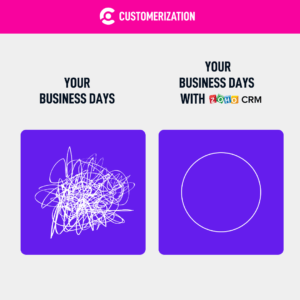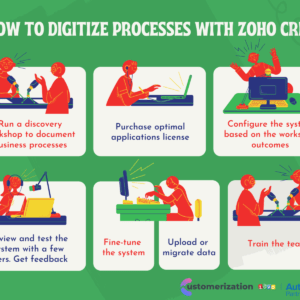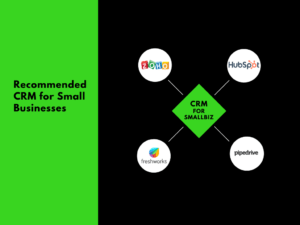- <strong>1Q. Why do you need a CRM system? What are you trying to accomplish?</strong>
- <strong>2Q. Who is going to use it?</strong>
- <strong>3Q. For each role – what will this role do in CRM?</strong>
- <strong>4Q. Do you have/need to create custom processes?</strong>
- <strong>5Q. What is your tech environment? How many apps is the organization using already? How many integrations are required?</strong>
- <strong>Bonus question</strong>
- <strong>6Q. How fast do I want the project to go live?</strong>
Customer relations management (CRM) is all about organizing information generated from interactions with your customers in a way that makes it easy to make sense of it. If you intend to implement a CRM project in your organization, there are specific questions you need to get answers to if you want your project to be as effective as possible. In this guide, we shall share the top 5 questions you have to ask before starting any CRM project. Let’s dive in!
1Q. Why do you need a CRM system? What are you trying to accomplish?
1A. To answer this question, you can start by setting 3-5 measurable targets for implementing the CRM project. These could be business problems that a CRM helps resolve. For instance, visibility of the customer base by concentrating all contact information in CRM vs. excel files; ramp mortgage renewal rates 20% by setting automated reminders or even better workflows in the CRM; increase revenue from cross- and up-sale 25% by running marketing campaigns based on the CRM segments. Using a CRM system can also be one of your strategies for enhancing your digital transformation endeavors.
2Q. Who is going to use it?
2A. Before implementing the CRM project, you need to know who will use the CRM system, how many they are, and their capacity to use it. These details will help you estimate licenses to buy – and this can be a dealbreaker while choosing the system to purchase or making decisions. When you have all these details, it will be easy to buy a CRM system that suits the users’ needs without necessarily paying a lot of money.
3Q. For each role – what will this role do in CRM?
3A. This is important to estimate the project’s scope – it might be close and straightforward to out-of-the-box (standard) functionality or very sophisticated (expanded in the next question). That reflects on the choice of the system (capability, flexibility), price of the system, and implementation services, and else. Do not overkill – list 3-5 processes per persona/user.
4Q. Do you have/need to create custom processes?
4A. The traditional/ standard CRM scope covers 360 customer view (lead > sale > support) of the CRM-related tasks. If your processes are much different (e.g., 8-9 step sales cycle; you’re a franchise business, etc.), you would love to know that before getting into the tranches in-house or with a consultant. In case you want to create custom processes, it is best to choose a CRM system that is flexible enough to allow the implementation of your custom processes.
5Q. What is your tech environment? How many apps is the organization using already? How many integrations are required?
5A. We had clients who decided to consolidate their systems and replace 8 different tools/ applications with Zoho One. Is that your case? A different example might be – if your whole organization runs on Microsoft environment, including SharePoint and Office, etc., it probably won’t make sense to go with Salesforce. OR if you are strongly leveraging HubSpot Marketing Automation and are an acquisition-focused org, probably HubSpot CRM is a natural choice. When you assess the kind of apps you are already using, it is best to choose a CRM system that easily integrates with them or an all-in-one CRM system that can do all the tasks that you currently use these apps for.
Bonus question
6Q. How fast do I want the project to go live?
6A. You do the system to work with it, right? We suggest defining what goes into the MVP/ first release – what are the musts you can’t live without. We recommend that the MVP resolves at least one business problem. For instance, if you intend to use the CRM system for customer support services, your MVP needs to have all the core customer support functionalities before going live.





